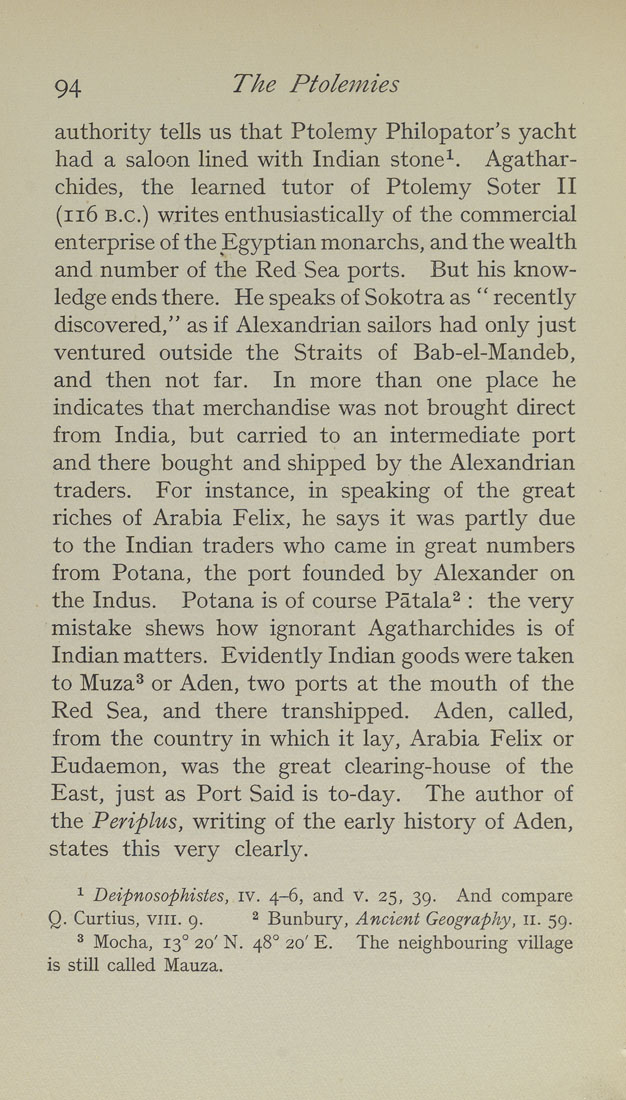94 The Ptolemies
authority tells us that Ptolemy Philopator's yacht
had a saloon lined with Indian stone ^. Agathar-
chides, the learned tutor of Ptolemy Soter II
(ii6 B.C.) writes enthusiastically of the commercial
enterprise of the Egyptian monarchs, and the wealth
and number of the Red Sea ports. But his know¬
ledge ends there. He speaks of Sokotra as '' recently
discovered," as if Alexandrian sailors had only just
ventured outside the Straits of Bab-el-Mandeb,
and then not far. In more than one place he
indicates that merchandise was not brought direct
from India, but carried to an intermediate port
and there bought and shipped by the Alexandrian
traders. For instance, in speaking of the great
riches of Arabia Felix, he says it was partly due
to the Indian traders who came in great numbers
from Potana, the port founded by Alexander on
the Indus. Potana is of course Patala^ : the very
mistake shews how ignorant Agatharchides is of
Indian matters. Evidently Indian goods were taken
to Muza^ or Aden, two ports at the mouth of the
Red Sea, and there transhipped. Aden, called,
from the country in which it lay, Arabia Felix or
Eudaemon, was the great clearing-house of the
East, just as Port Said is to-day. The author of
the Periplus, writing of the early history of Aden,
states this very clearly.
^ Deipnosophistes, iv. 4-6, and v. 25, 39. And compare
Q. Curtius, viii. 9. ^ Bunbury, Ancient Geography, 11. 59.
^ Mocha, 13° 20' N. 48° 20' E. The neighbouring village
is still called Mauza.
|








